
Many so-called “independent” water ionizer review sites are not what they seem. Their goal is often to look impartial or official—but their purpose is to promote their own brand while discrediting competitors.
How Fake Water Ionizer Reviews Mislead Consumers
Since 2008, when I began selling water ionizers, I’ve seen extensive deception in how certain brands are compared online. For instance, some review sites test ionizers using water with an unnaturally high pH (unsafe for drinking) to inflate their antioxidant readings. Others use misleading pricing tactics or hide who owns the website entirely.
Many of these review websites give the impression of being neutral “consumer guides” but are, in fact, operated by the manufacturers themselves. They rate their own machines as “best” and give poor scores to competitors—creating the illusion of credibility.
Examples of Deceptive Water Ionizer Review Websites
Below are some examples of websites that appear to be independent but are reportedly owned or managed by the same brands they promote:
- Water Ionizer Pure Reviews for Pure Water: (waterionizer.com) — associated with Tyent
- Water Ionizer Buyer’s Guide: — associated with Tyent
- Ionizer Research: (ionizerresearch.com) — associated with Tyent
- Editor's Choice Awards / Water Ionizer of the Year: — both associated with Tyent
- Alkaline Water Ionizer Reviews: (alkalinewaterionizerreviews.com) — associated with Lifeionizers
- Best Water Ionizer Reviews: — associated with AirWaterLife
These sites often promote “awards” or “editor’s choices” that do not exist outside their own marketing networks. For example, “Water Ionizer of the Year” is a self-issued award used to make their products appear superior.
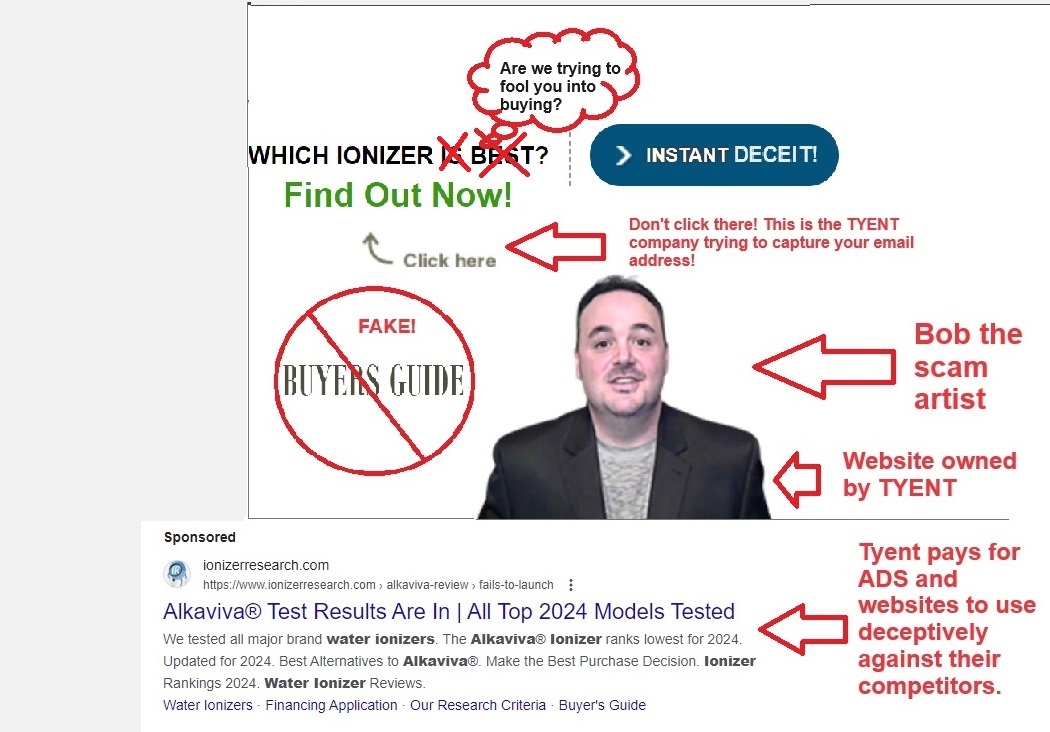
Deceptive Pricing and Marketing Practices
Several water ionizer companies engage in deceptive pricing—advertising a “regular” price far higher than any real selling price. The Federal Trade Commission (FTC) defines deceptive pricing as unlawful when a company misleads consumers into thinking they are getting an exceptional discount.
In practice, this means a company might list a $3,000 ionizer as “50% off” when the real market price is closer to $1,500. The inflated price creates a false sense of value and urgency.
Brand-Specific Deception Examples
Tyent USA
Tyent has operated multiple review and “award” websites under different names, creating the impression of third-party endorsement. In addition, Tyent’s frequent “limited-time” 50% off sales are a textbook case of deceptive pricing as defined by the FTC. Consumers should always verify whether a claimed discount reflects actual market value.
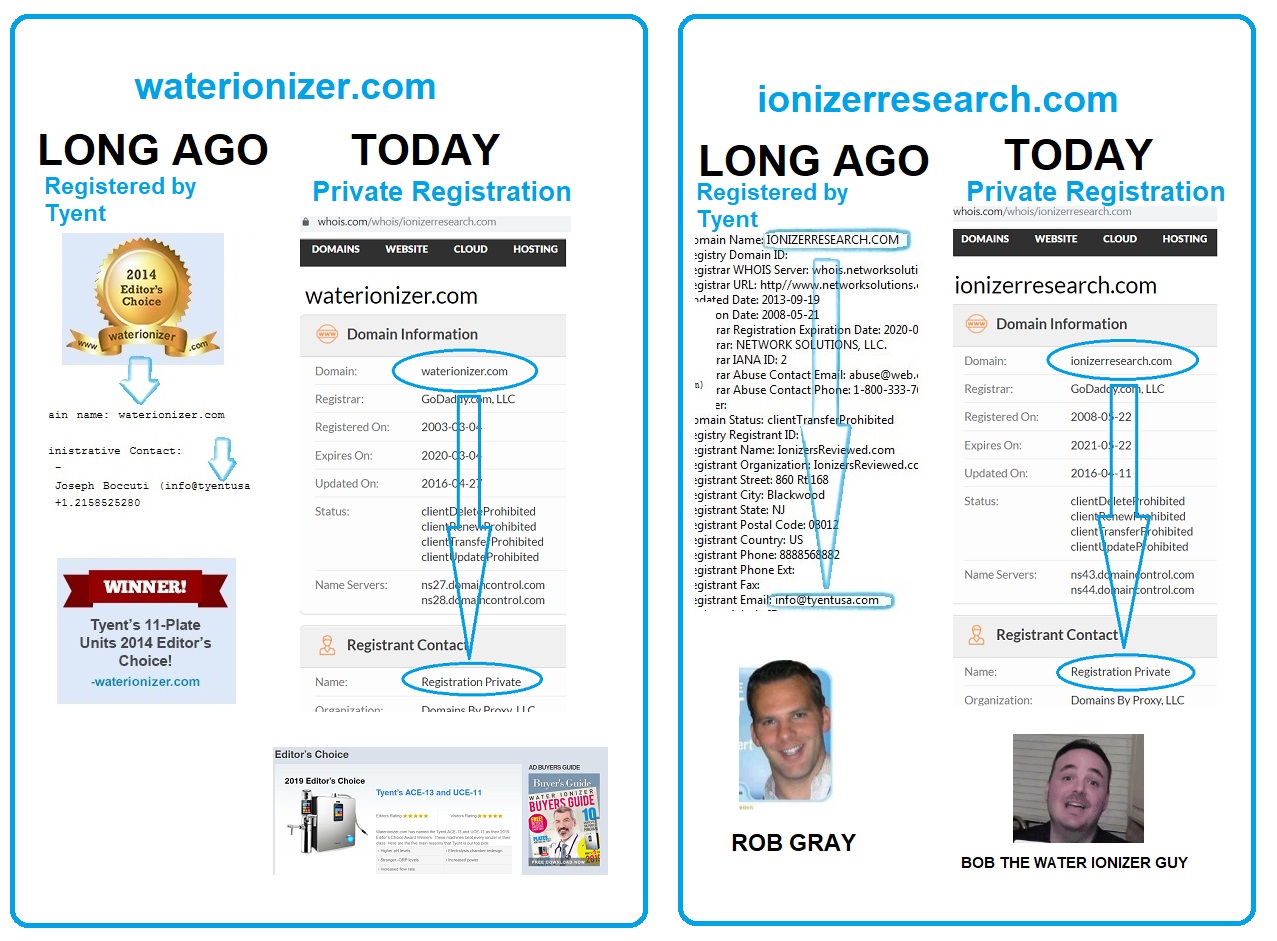
Enagic / Kangen Water
Enagic dealers often promote Kangen Water machines with unverified health claims or testimonials presented as facts. These presentations can create a powerful peer-convincing effect. However, my independent testing of the Enagic SD-501 found that its performance was comparable—or sometimes inferior—to other high-quality ionizers at lower prices.
Enagic’s machine lacked continuous cleaning and required frequent manual maintenance, further reducing its practical value. Read more about Enagic Kangen water ionizers.
Air Water Life
Air Water Life has used misleading statements such as claiming to be the only brand using “safe plastics.” Testing and documentation show that other manufacturers also meet safety standards. Their promotional review sites further add to the confusion by imitating neutral comparison sources.
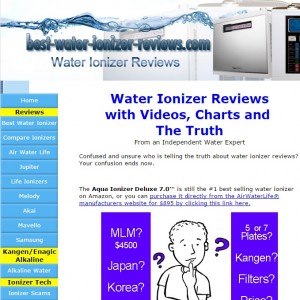
Lifeionizers
Lifeionizers has made misleading claims about U.S. manufacturing, despite sourcing machines from Prime Water Company LTD in Korea. These products are later modified in the U.S., but labeling them as “Made in the USA” can mislead customers.
Additionally, some Lifeionizers tests and demonstrations, such as the H2 antioxidant “drop test,” use incorrect measurements that inflate results. Such methods can mislead consumers about product performance.
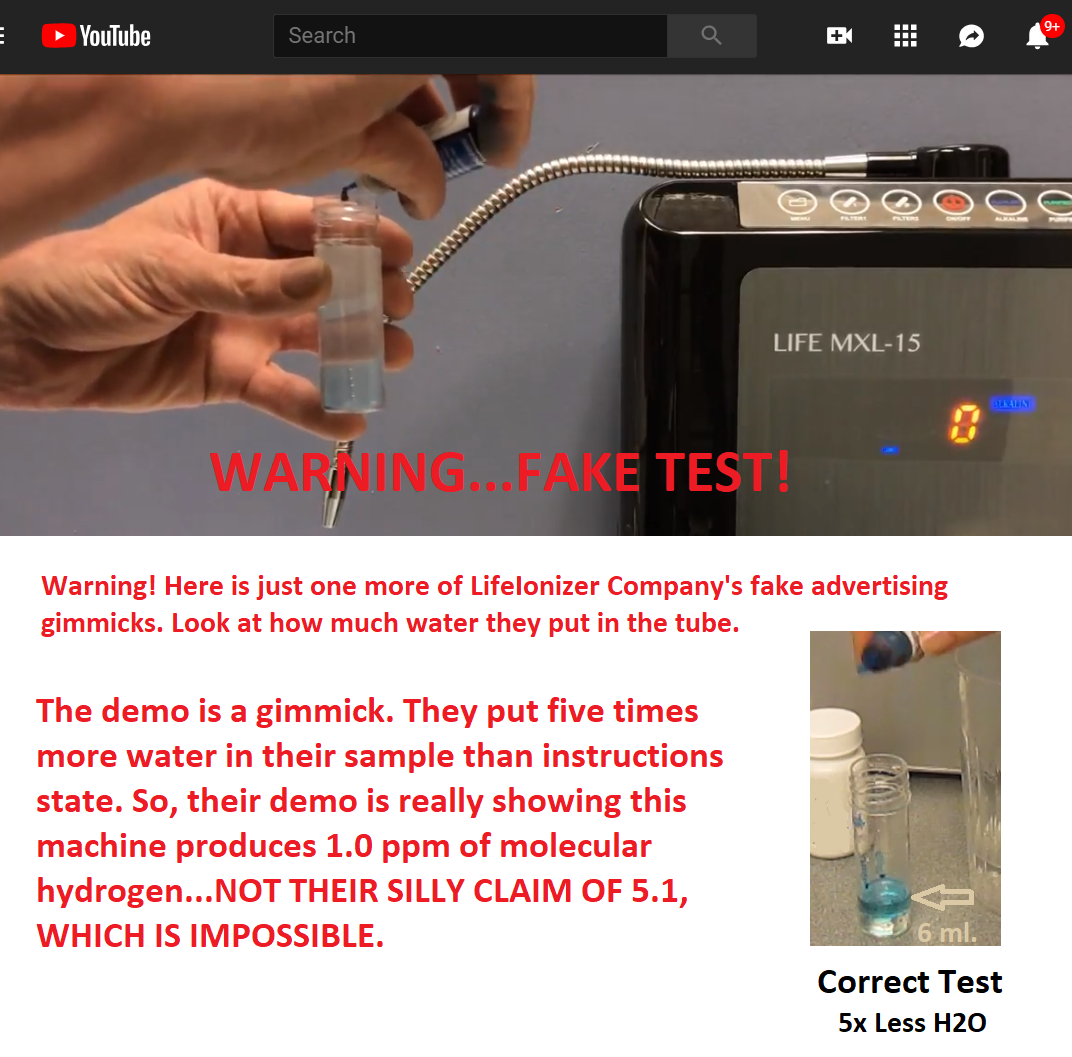
“Natural Alkaline Water” Comparisons
Some filter or vortex system companies compare their “natural alkaline water” products to electric water ionizers, implying similar benefits. Independent testing shows that these systems produce no measurable antioxidants and do not alter pH meaningfully. Such comparisons are not scientifically valid.
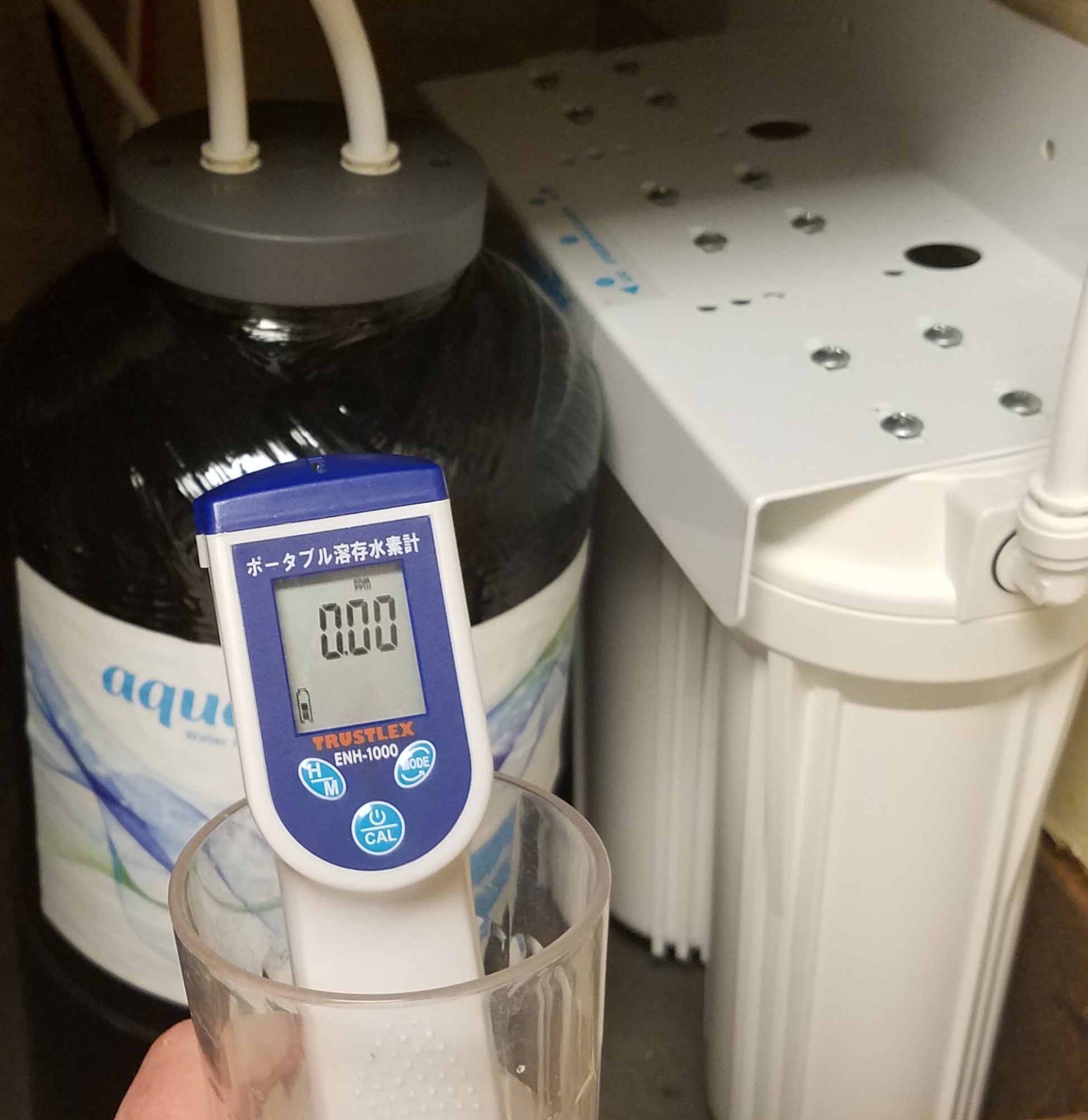
How to Identify Fake Water Ionizer Reviews
- Check who owns the domain (many fake review sites hide behind proxy services).
- Look for “awards” or badges that can’t be verified by outside sources.
- Be cautious of sites that rate only one brand as “#1” across every category.
- Compare technical test results like pH and ORP from multiple independent sources.
- Trust companies that show actual test data, photos, and comparison videos.
Trustworthy Testing & Transparent Reviews
At Alkaline Water Plus, we’ve independently tested nearly every major brand of water ionizer since 2008. We do not accept payment for positive reviews or promotions. Every comparison on this site is based on measurable performance data, including:
- pH range and stability
- ORP (antioxidant potential)
- Filtration quality
- Electrode and chamber design
- Durability and cleaning systems
Our mission is to help customers choose the best ionizer for their needs, based on facts—not marketing hype.
Conclusion
Fake review sites and deceptive pricing have unfortunately become common in the water ionizer industry. By learning to recognize these tactics and relying on transparent, data-based testing, you can make an informed choice that protects your health and your wallet.
Alkaline Water Plus has spent over 15 years independently testing and comparing all major brands. We’re proud to offer only the most reliable, high-performing ionizers—those that have proven themselves through real science and real results.
